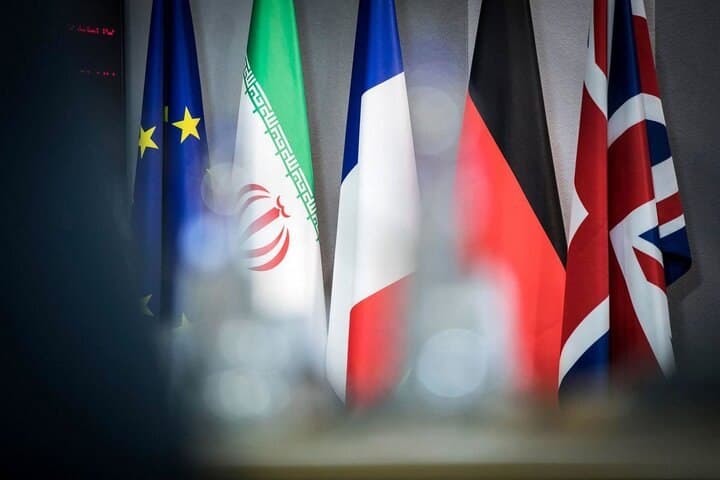#BREAKING | The E3 (France, Germany, UK) has issued a stern warning to the UN: Iran faces the reimposition of sanctions via the "snapback" mechanism if it fails to resume nuclear talks with the IAEA by the end of August.
Background & Context
The European Union"s E3, comprising France, Germany, and the United Kingdom, has taken a firm stance regarding Iran"s nuclear ambitions, emphasizing the urgency of resuming negotiations with the International Atomic Energy Agency (IAEA). This warning comes amid escalating tensions surrounding Iran"s nuclear program, which has raised significant concerns among Western nations since the U.S. withdrawal from the Joint Comprehensive Plan of Action (JCPOA) in 2018. The JCPOA was a landmark agreement aimed at curbing Iran"s nuclear capabilities in exchange for the lifting of sanctions. However, the subsequent reimposition of sanctions and Iran"s gradual abandonment of the agreement have led to a precarious geopolitical landscape.
The snapback mechanism, a provision of the JCPOA, allows for the automatic reinstatement of sanctions if Iran is found to be in violation of its commitments. The E3"s warning serves not only as a reminder of the potential consequences of Iran"s inaction but also highlights the ongoing struggle to maintain diplomatic dialogue in the face of rising hostilities. As previously reported, the implications of Iran"s nuclear developments extend beyond regional security, impacting global diplomatic relations and international stability.
Key Developments
The E3"s ultimatum was issued on a critical timeline, with the end of August marking a pivotal point for negotiations. The warning underscores the urgency for Iran to engage with the IAEA to address outstanding issues regarding its nuclear program. In a joint statement, the foreign ministers of the three nations expressed their deep concern over Iran"s non-compliance and the potential repercussions if diplomatic efforts continue to falter.
Iran"s response to this warning remains to be seen, but previous interactions have shown a pattern of reluctance to fully cooperate with international demands. The Iranian government has repeatedly insisted on its right to develop nuclear technology for peaceful purposes, yet the lack of transparency and the acceleration of its nuclear activities have raised alarms among the E3 and other global powers. As the clock ticks down to the August deadline, the international community watches closely to see if Iran will adhere to the call for renewed discussions.
Broader Impact
The ramifications of Iran"s nuclear policy extend far beyond its borders. The potential reimposition of sanctions through the snapback mechanism could have significant economic consequences for Iran, which is already grappling with the effects of existing sanctions and a struggling economy. Furthermore, this development could exacerbate tensions in the Middle East, where Iran"s nuclear capabilities are viewed as a direct threat by neighboring countries, particularly Israel and Saudi Arabia.
Experts suggest that the E3"s warning is indicative of a broader strategy to reinvigorate diplomatic efforts and prevent a nuclear escalation in the region. The recent developments in Iran"s nuclear program have drawn parallels to similar situations in North Korea, where diplomatic negotiations have often been met with setbacks and confrontations. Analysts argue that a failure to engage in dialogue could lead to a dangerous escalation of military posturing and regional conflict, underscoring the importance of sustained international diplomatic efforts.
What"s Next
As the deadline approaches, the spotlight remains on Iran"s decision-making process and its willingness to engage with the IAEA. The E3 has signaled that they are prepared to take decisive action should Iran fail to comply with their demands, which could include the swift reintroduction of sanctions that would further isolate the country economically and politically. The international community is also poised to respond, with the United States and other global powers monitoring the situation closely.
Looking ahead, the outcome of this standoff will likely set the tone for future negotiations concerning Iran"s nuclear program. Should Iran choose to resume talks, it may open a pathway for renewed diplomatic engagement and the possibility of easing tensions. Conversely, a continued refusal to negotiate could lead to a deterioration of relations and potential military confrontations. The next few weeks will be critical in determining the direction of Iran"s nuclear ambitions and their broader implications for regional and global security.


![[Video] Heavy clashes and gunfire reported in Baghdad, Iraq](/_next/image?url=%2Fapi%2Fimage%2Fthumbnails%2Fthumbnail-1768342239932-848qsh-thumbnail.jpg&w=3840&q=75)




![[Video] Gunfire between Iraqi security forces and Sadr militias in Baghdad](/_next/image?url=%2Fapi%2Fimage%2Fthumbnails%2Fthumbnail-1768343508874-4redb-thumbnail.jpg&w=3840&q=75)
